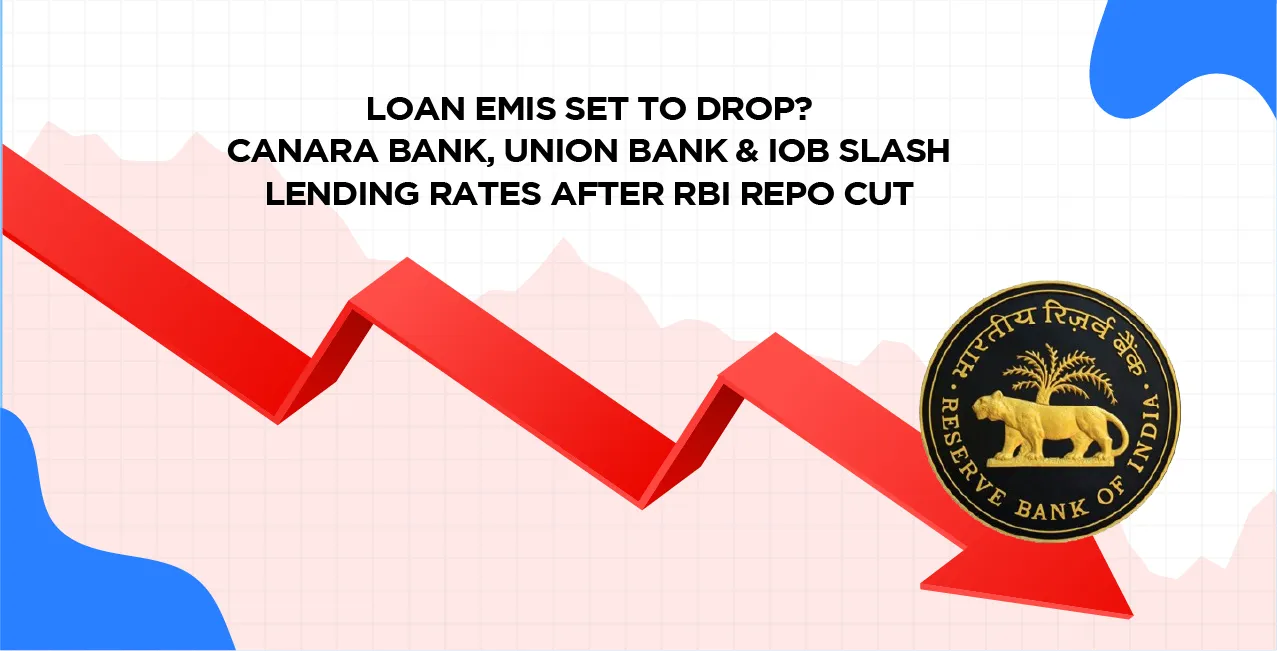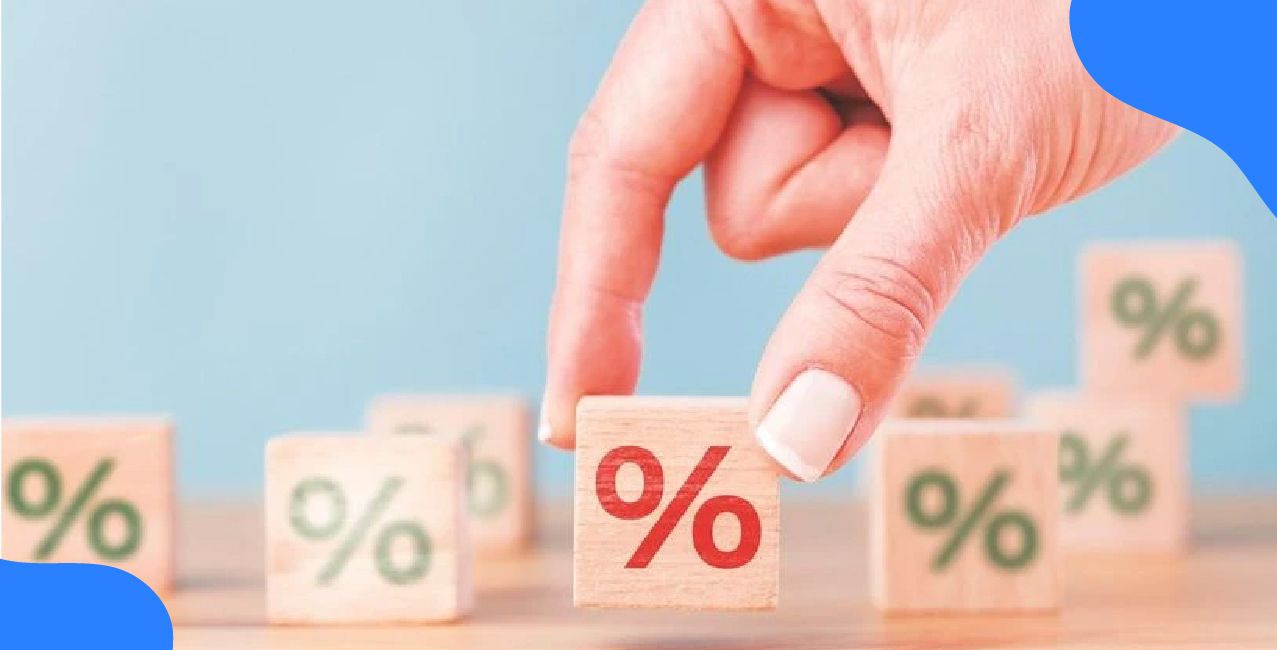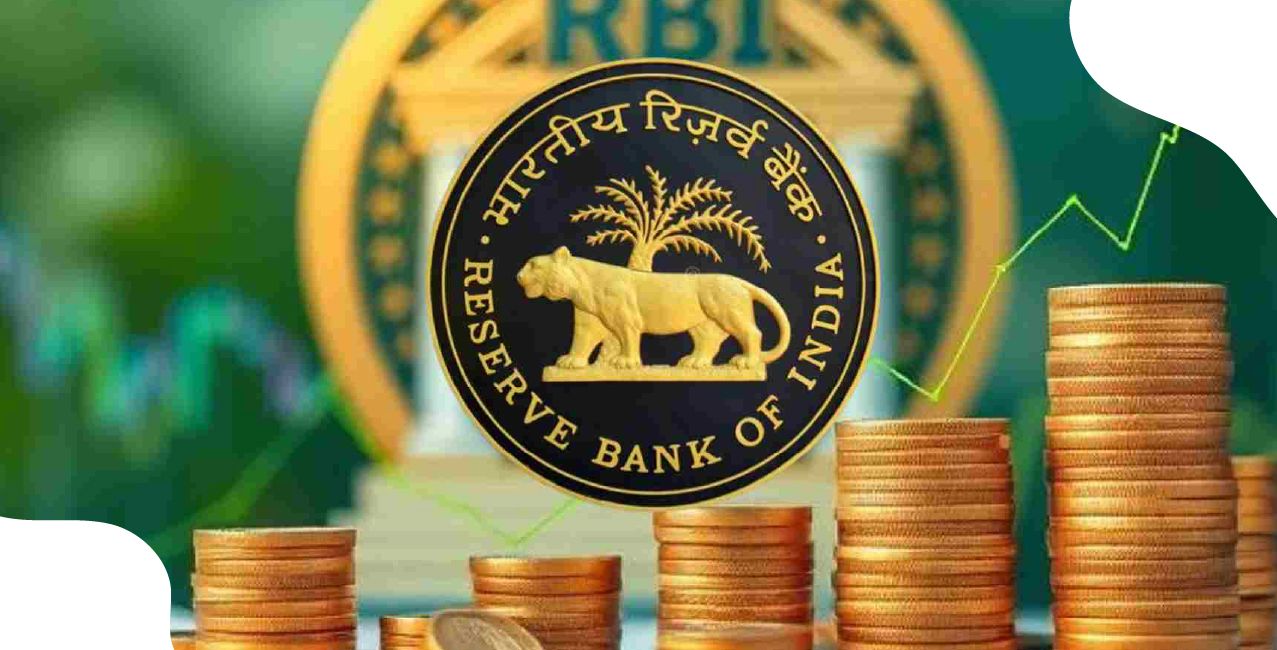
Author
LoansJagat Team
Read Time
4 Min
12 Jun 2025
Loan EMIs Set to Drop? Canara Bank, Union Bank & IOB Slash Lending Rates After RBI Repo Cut
RBI cut the repo rates by 50 basis points or 0.5% on June 6, 2025. This means that now banks will be charged just 5.5% interest rate if they borrow any loan from the RBI.
This decision came after the Monetary Policy Committee (MPC) concluded its bi-monthly review, citing moderated inflation and the need to spur borrowing in a fragile macroeconomic environment.
To carry forward this benefit to the account holders, commercial banks have now pulled down their lending rates, recently. With some banks already reducing their rates, you could potentially save up to ₹10 lakh over your loan tenure just by understanding where and how this change affects you.
Read on to find out how.
How Many Banks Have Reduced Their Lending Rates?
Following the RBI’s move, Canara Bank, Union Bank of India, and Indian Overseas Bank (IOB) were among the first to pass on the benefits to borrowers. Here’s a summary of the rate reductions:
Bank | Benchmark Type | Previous Rate | Current Rate | Change (bps) |
Canara Bank | MCLR (1-Year) | 8.55% | 8.35% | -20 |
Union Bank of India | EBLR | 9.25% | 8.75% | -50 |
Indian Overseas Bank | RLLR | 9.10% | 8.60% | -50 |
Note: MCLR = Marginal Cost of Funds Based Lending Rate; EBLR = External Benchmark Linked Rate; RLLR = Repo Linked Lending Rate.
Read this blog to know the revised lending rates of all the other banks
Savings on Loan EMI After Repo Rate Cut
Let’s take a fictional character Amit Verma, a salaried individual with a ₹1 crore home loan for 20 years. Below is how the rate cut translates into EMI savings:
Bank | Rate Before | EMI Before | Rate After | EMI After | Monthly Savings | Total Savings Over 20 Years |
Canara Bank (MCLR) | 8.55% | ₹ 87,000 | 8.35% | ₹ 85,000 | ₹ 1,352 | ₹ 3,24,480 |
Union Bank (EBLR) | 9.25% | ₹ 91,000 | 8.75% | ₹ 88,000 | ₹ 3,414 | ₹ 8,19,360 |
IOB (RLLR) | 9.10% | ₹ 90,000 | 8.60% | ₹ 86,000 | ₹ 3,499 | ₹ 8,39,760 |
On which lending rate is your loan based? Read the next section to know the difference.
What is the Difference Between MCLR, EBLR, and RLLR?
Parameter | Full Form | Linked To | Introduced In | Review Frequency | Transparency | Best For | Why Introduced? |
MCLR | Marginal Cost of Funds Based Lending Rate | Internal Cost of Funds | 2016 | Monthly/Quarterly | Moderate | Short-to-Mid Term Loans | To improve the outdated base rate system and bring semi-transparency |
EBLR | External Benchmark Linked Rate | External Benchmarks (e.g. RBI Repo) | 2019 | Dynamic (As per Benchmark) | High | Floating Rate Retail Loans | To enforce full rate transmission and transparency post-RBI recommendations |
RLLR | Repo Linked Lending Rate | Directly to Repo Rate | 2019 | Changes with Repo Rate | Very High | Home/Personal/Auto Loans (Floating) | To ensure faster and complete transmission of monetary policy benefits to borrowers |
On What Rate Should You Base Your Loan?
Let’s analyze the effect of a 50 bps repo cut on a ₹1 crore loan for 20 years, comparing EMI impact across MCLR, EBLR, and RLLR-linked loans:
Loan Type | Before Rate Cut | After Rate Cut | EMI Before (₹) | EMI After (₹) | Difference (₹/month) | Total Interest Saved Over Tenure (₹) |
MCLR-based | 8.55% | 8.35% | 87,254 | 85,902 | 1,352 | 3,24,480 |
EBLR-based | 9.25% | 8.75% | 91,816 | 88,402 | 3,414 | 8,19,360 |
RLLR-based | 9.10% | 8.60% | 90,366 | 86,867 | 3,499 | 8,39,760 |
Conclusion: RLLR and EBLR-based loans show faster and more substantial transmission of repo rate changes than MCLR-based ones. However, borrowers should also factor in frequency of revision, tenure flexibility, and prepayment conditions.
Conclusion
With the RBI’s proactive rate cut and major public sector banks like Canara Bank, Union Bank, and IOB passing on the benefit, borrowers now stand at a crucial crossroads. Choosing the right lending rate benchmark—be it MCLR, EBLR, or RLLR—can save you lakhs over your loan’s tenure.
With this cut in lending rates, smart borrowers who understand the mechanics of rate-linked loans can end up saving ₹8–10 lakh or more on a standard home loan.
Make sure you stay updated, renegotiate if needed, and always compare loan products before signing on the dotted line.
About the Author

LoansJagat Team
‘Simplify Finance for Everyone.’ This is the common goal of our team, as we try to explain any topic with relatable examples. From personal to business finance, managing EMIs to becoming debt-free, we do extensive research on each and every parameter, so you don’t have to. Scroll up and have a look at what 15+ years of experience in the BFSI sector looks like.

Quick Apply Loan
Subscribe Now
Related Blog Post

LoansJagat Team • 05 Jan 2026

LoansJagat Team • 05 Jan 2026

LoansJagat Team • 31 Dec 2025